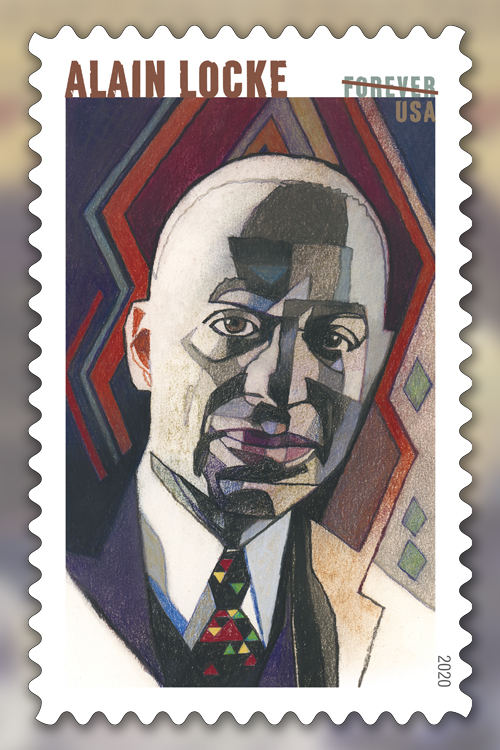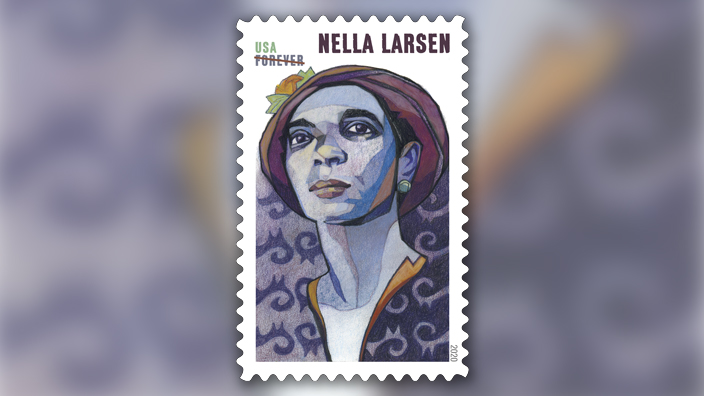Alain LeRoy Locke was a respected figure of the Harlem Renaissance who wrote and edited some of the arts movement’s most significant publications and played a leading role in supporting and promoting African American writers and artists.
Locke (1885-1954) is one of four African American literary figures who’ll be featured on Voices of the Harlem Renaissance, a stamp pane that USPS will release this week.
Born in Philadelphia, Locke was an exceptional student who graduated from Harvard University with honors in 1907. He became the first African American Rhodes scholar, studying at the University of Oxford in England and later at the University of Berlin.
In 1912, Locke began teaching at Howard University in Washington, DC, where he would remain, with only a few gaps, for more than 40 years. In 1918, he earned a doctorate degree in philosophy from Harvard.
Locke edited “Harlem: Mecca of the New Negro,” a special 1925 issue of the Survey Graphic magazine that was devoted to African American culture. The publication emphasized the work of more than two dozen prominent activists, civil rights leaders, historians and poets, and became one of the most important publications of the Harlem Renaissance.
Locke’s contribution to the issue was “Enter the New Negro,” an essay in which he predicted that African Americans were entering a new era of self-respect, self-reliance and pride.
Later that year, Locke used the special issue as the basis for his book, “The New Negro: An Interpretation,” which placed a greater emphasis on art and culture, including fiction, poetry, music and drama.
Locke edited the 1927 book “Four Negro Poets” and worked to secure financial support for black writers and artists.
Until 1952, Locke published annual surveys of African American literature and a series of books about African American life. In 1942, he co-edited “When Peoples Meet,” a landmark collection of essays about race relations.
Locke’s legacy has endured.
Howard University’s Arts and Sciences building is named for him, as well as schools in several cities, including Philadelphia. In 1973, Harvard hosted a scholarly symposium on his accomplishments, and since 1993 has awarded the Alain Locke Prize to the most outstanding student of African American studies.
This is the second of four profiles of the African American literary figures who’ll be featured on the Voices of the Harlem Renaissance stamps. Tomorrow: Arturo Alfonso Schomburg.



